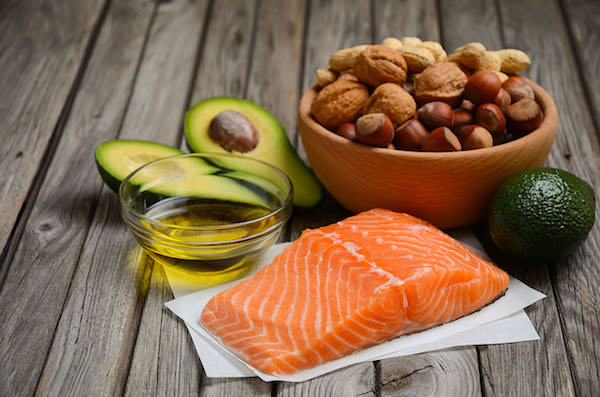The Importance of Healthy Fats

Fats and oils are part of a healthy diet and play many important roles in the body. Healthy fats provide energy and are a carrier of essential nutrients such as vitamins A, D, E, K, and carotenoids. But many older adults have been told to decrease the amount of fat in their diets and are confused about what to do.
When it comes to adding fats and oils into our diet, making the right choice can be difficult. Which are good, which are bad? Can some fats actually improve overall health, or is the ‘no-fat’ choice, right? New studies follow older ones, and the answers seem to change with time, which leads to conflicting and somewhat confusing results.
The fact is, healthy fats are crucial to your health. To have your body functioning in prime condition, fats are essential. Among the many role’s healthy fats play, some of the most important ones are:
- they aid in tissue repair
- help with metabolism and hormone synthesis
Additionally, fats affect the immune system in various ways. Our bodies manufacture most of the fatty substances we need, but not all. Certain fatty acids must be consumed, however, in small quantities.
It’s important to point out that eating less saturated fat and trans-fat can lead to heart disease and clogged arteries. A saturated fat is on that is solid at room temperature while a trans-fat is made when liquid vegetable oil is processed to become solid or hydrogenated. Cholesterol is a fat found only in animal products and can also lead to heart disease. That doesn’t mean these should be avoided altogether but it’s important to maintain a low intake of them.
There are two families of essential fatty acids, or, EFA’s. One is omega-6, which is found in many seeds and their oils. For instance, hempseeds and its oil, as well as grapeseed oil are good choices. Grapeseed oil and unrefined coconut oil are much better choices for frying foods instead of the vegetable oils sold today, which are mainly trans-fats.
Legumes are another good choice for the omega-6 EFA’s found in most beans, as well as lentils and peas. Nuts, such as pistachios and pine nuts are an excellent source of omega-6.
Omega-3 EFA’s is the other family to notice. Good sources of Omega-3’s can be found in salmon, pasture-raised meats, wild rice (which is actually a grass), walnuts, beans, and avocados. Actually, an avocado is by far one of the healthiest €˜fat’ foods available.
To keep fat intake where it remains healthy, staying at 10% of a total caloric intake keeps your body in the smart zone. Balancing the omega-3 and omega-6 choices in a healthy diet also keeps the body in balance.
Enjoying the choices of healthy fats that are available will help maintain your body on a whole. They help keep you alert, keep the joints and bones healthy, work to keep depression at bay, and allow for a more active life style.
- How Seniors Can Feel Empowered in a Digital World with Accessible Technology
- February Is American Heart Month
- Thriving as a New Caregiver: Self-Care Secrets Revealed
- Bridging the Gap: Supporting Seniors Without Nearby Family
- Distance Caregiving Simplified: Modern Strategies for Compassionate Support
FREE BROCHURE Today!
